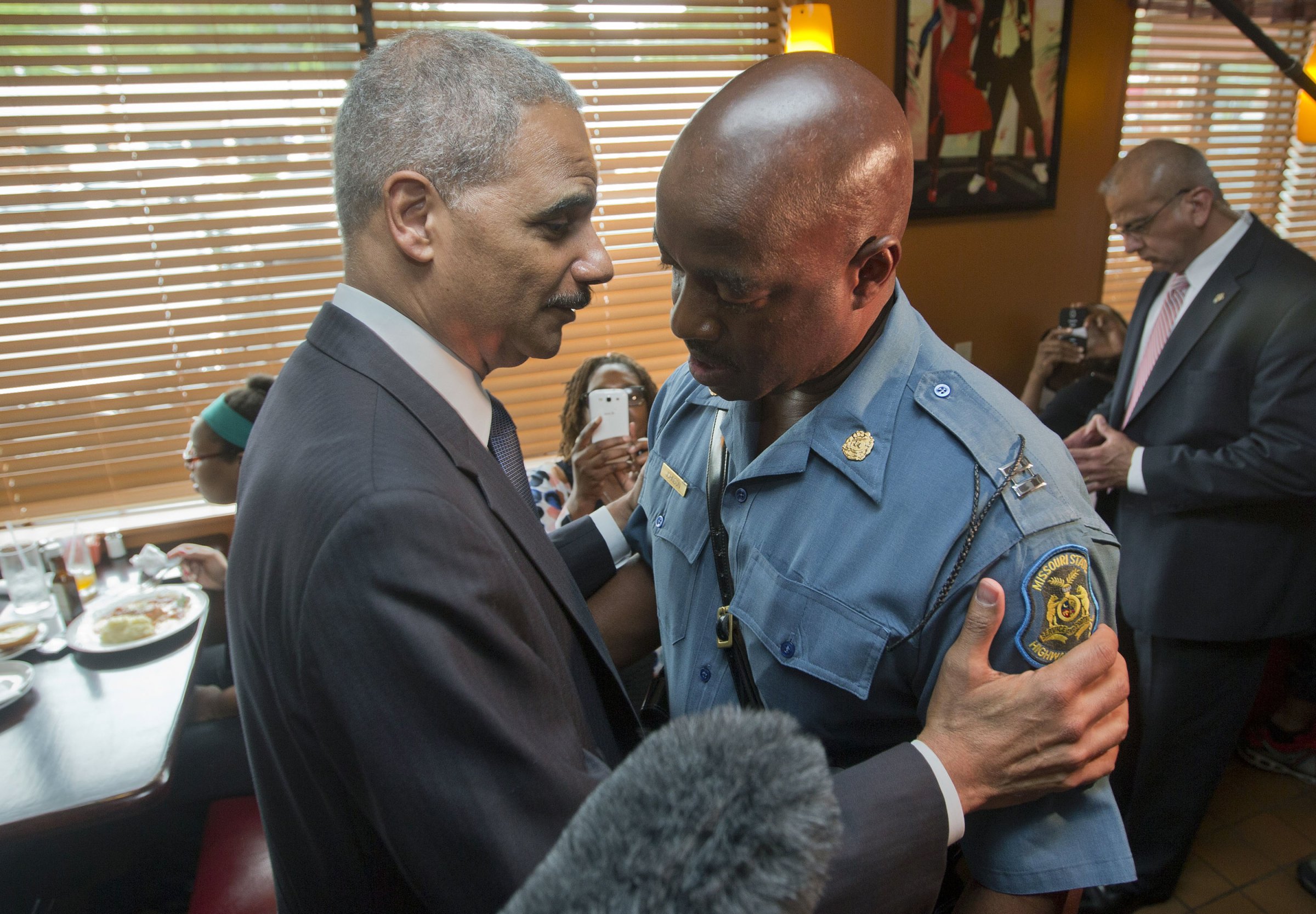
Is the Ferguson police department racist?
Nearly a month after the shooting death of an unarmed black teenager at the hands of a white police officer, that question is going to get an official answer, as Attorney General Eric Holder has announced a broad investigation into whether the cops in Ferguson, Mo. engaged in a pattern or practice of civil rights violations over the years.
But not all investigations are created equal, and the new DOJ probe may not deliver the kind of results that last month’s impassioned demonstrators were looking for.
The Department already has a targeted probe into the shooting of the teenager, Michael Brown, by the police officer, Darren Wilson. That investigation is designed to answer the narrow question of whether Wilson broke the law by shooting and killing Brown. The first step in the process of answering that question will come when a grand jury decides whether or not to indict Wilson; the final step would be a trial jury’s determination of his guilt or innocence.
For all the power of that criminal probe, though, Wilson’s fate won’t fix Ferguson, one way or the other. Unfortunately for that struggling suburb, it is unlikely Holder’s new civil rights investigation will either.
The new investigation is being undertaken by the Civil Rights Division’s Special Litigation Section. It doesn’t prosecute crimes–there’s a separate criminal section in the division designed to help prosecutors do that. Instead, among other things, the Special Litigation Section seeks settlements and court orders to require systemically discriminatory police departments to improve their behavior. It gets them to do that by imposing reforms like increased transparency and data collection, fostering community-police partnerships, reviewing uses of force and providing training and supervision.
Which is not to say such steps aren’t useful. Holder today called the work of the Special Litigation Section “historic” and said the department has opened 20 such investigations in the last five years, and is enforcing 14 agreements with law enforcement organizations.
But even if the new investigation does find systemic discrimination in Ferguson, and even if it does lead to a settlement or a court order, that will amount to one small step in the beleaguered community’s efforts to rebuild and reform.
More Must-Reads From TIME
- The 100 Most Influential People of 2024
- The Revolution of Yulia Navalnaya
- 6 Compliments That Land Every Time
- What's the Deal With the Bitcoin Halving?
- If You're Dating Right Now , You're Brave: Column
- The AI That Could Heal a Divided Internet
- Fallout Is a Brilliant Model for the Future of Video Game Adaptations
- Want Weekly Recs on What to Watch, Read, and More? Sign Up for Worth Your Time
Contact us at letters@time.com